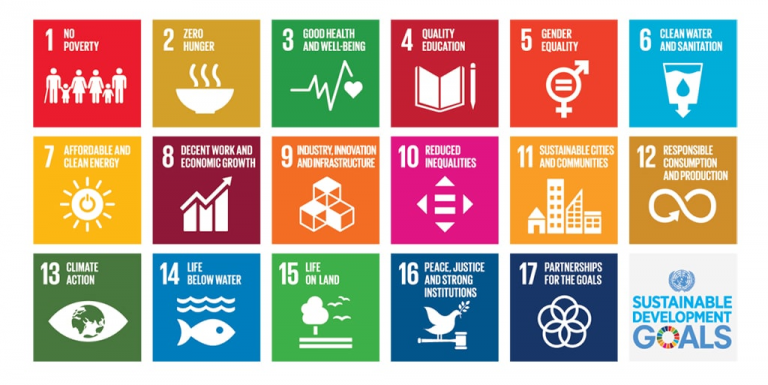
A number of market analyst assessments over the previous decade demonstrated that Nigeria’s facility management business has made and continues to make important contributions to the economy. Key stakeholders are making a difference by creating job opportunities and assisting businesses, individuals, and governments in meeting their strategic goals and objectives. According to one of the forecasts, the value of the industry will be $12.7 billion USD over the next two years. This is based on the 6.4% growth rate expected from 2020 to 2027.
Generally, facility management businesses provide solutions that support and increase the value of soft and hard facilities for all stakeholders in a built environment. By application, the minor and main players have over the years provided solutions for residential, commercial, and industrial clients before the adoption of the Sustainable Development Goals in 2015.
Like other industries and sectors, the facility management industry is strategic to the attainment of the SDGs and their targets in any community, town, city, and country in the world. This has singlehandedly contributed to how stakeholders in the Nigerian industry have discussed the goals and targets at various forums in the last five years. Our analyst notes that companies, through seminars, workshops, and roundtable discussions, among others, have directly or indirectly debated the critical role of FM in the realization of the SDGs.
Register for Tekedia Mini-MBA edition 19 (Feb 9 – May 2, 2026): big discounts for early bird.
Tekedia AI in Business Masterclass opens registrations.
Join Tekedia Capital Syndicate and co-invest in great global startups.
Register for Tekedia AI Lab: From Technical Design to Deployment (next edition begins Jan 24 2026).
Meanwhile, in this piece, our analyst notes that while the industry is relevant to all the SDGs, there are core SDGs that the players in Nigeria need to continue to pay attention to by exploring inherent opportunities as the Nigerian government continues implementing and creating new policies for the total realisation of the goals and their targets.
SDG 7: Affordable and Clean Energy
Nigeria has made considerable headway in extending access to electricity, but there are still hurdles to assuring cost and reliability. The country continues to rely largely on fossil fuels, with little progress toward transitioning to cleaner and renewable energy sources. Facilities management is required here because of its ability to optimize energy usage inside buildings and facilities, promote energy saving measures, and integrate renewable energy sources where possible.
SDG 9: Industry, Innovation, and Infrastructure
Nigeria is severely lacking in electricity, telecommunications, and transportation infrastructure. Although there have been initiatives to develop infrastructure, like building new roads and ports, obstacles include low budget, corruption, and bureaucratic red tape impede development. Sustaining sustainable industrialization, promoting innovation in building technology and management techniques, and developing resilient infrastructure are all facilitated by efficient facility management.
SDG 11: Sustainable Cities and Communities
Nigeria’s growing urbanization has posed issues in providing appropriate housing, transportation, and basic amenities in cities. Informal settlements, poor urban planning, pollution, and inadequate infrastructure all represent substantial barriers to developing sustainable cities and communities. Facility management has a direct impact on the quality of urban infrastructure, such as buildings, transit systems, and public spaces, which helps to create inclusive, safe, resilient, and sustainable cities.
SDG 12: Responsible Consumption and Production
Nigeria faces significant levels of trash creation and little recycling facilities. Consumption patterns are frequently unsustainable, contributing to environmental degradation and resource depletion. Efforts to promote ethical consumption and production are hampered by insufficient waste management systems and low awareness. Facility management contributes to sustainable consumption and production patterns by maximizing resource utilization, decreasing waste output, and applying recycling and circular economy principles.
SDG 13: Climate Action
Nigeria is subject to the effects of climate change, such as extreme weather, sea-level rise, and desertification. The country has made actions to combat climate change, including the National Climate Change Policy and Nationally Determined Contributions (NDCs) under the Paris Agreement. Nonetheless, practical obstacles and competing goals persist. Facilities management strategies can help to reduce climate change by lowering greenhouse gas emissions, implementing climate-resilient building designs, and adapting facilities to the effects of climate change.
SDG 15: Life on Land
Nigeria confronts tremendous issues in terms of deforestation, land degradation, and biodiversity loss. Factors such as urbanization, agriculture, and logging all contribute to habitat loss and ecological degradation. Efforts to maintain biodiversity and promote sustainable land use confront obstacles such as lax enforcement of environmental legislation and insufficient funding. Sustainable facility management strategies can help to reduce the environmental impact of buildings and facilities, preserve biodiversity, and safeguard natural ecosystems in urban environments.
SDG 17: Partnerships for the Goals
Nigeria understands the value of partnerships in achieving sustainable development and has worked with a variety of stakeholders, including international organizations, civil society, and the corporate sector. However, stakeholder coordination remains difficult, and there is a need for greater cooperation. Collaboration among facility management stakeholders, including governments, corporations, civil society, and international organizations, is critical for meeting sustainable development goals and adopting new solutions.



